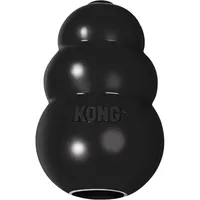Can dogs chew on corn cobs? Vet reveals 4 risks you need to know
Our vet explains why this common BBQ leftover can be more dangerous than you think – and what to offer instead
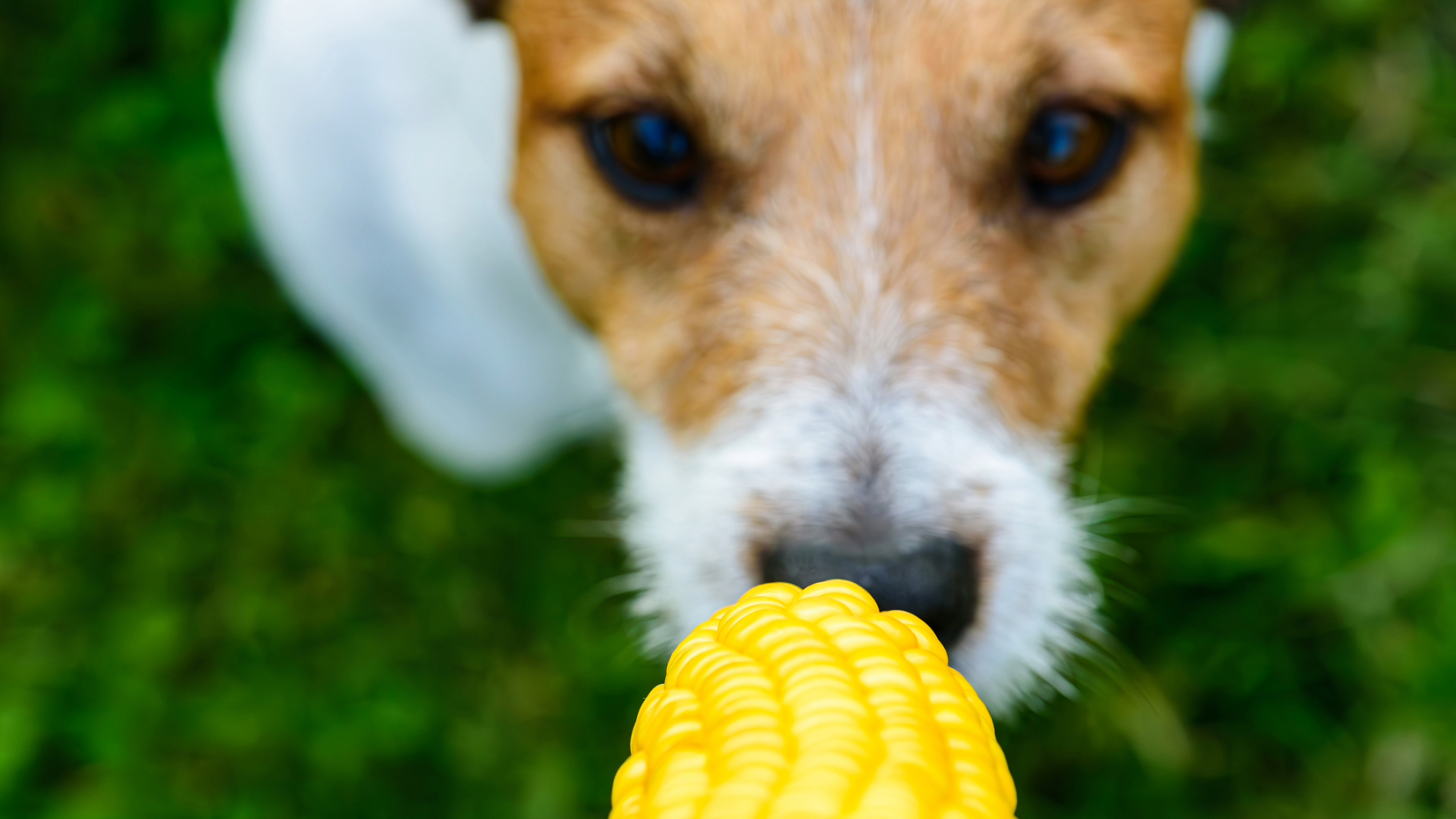
Can dogs chew on corn cobs? It’s a question vets hear time and time again – especially during summer, when barbecues are in full swing and corn on the cob is on every plate. As a small animal vet with nearly 14 years’ experience, I’ve seen first-hand the consequences of feeding dogs well-meaning but unsuitable leftovers.
Corn cobs might seem harmless, but they can cause some issues for our canine companions including serious problems such as intestinal blockages – often requiring emergency surgery to remove. That’s why it’s so important to be well-informed about what’s safe for your dog to chew on and what’s best kept out of reach.
If your dog loves to chew, there are plenty of vet-approved options that are both safe and satisfying. You can check out some of the best long-lasting dog chews to keep your pup entertained and out of harm’s way. But first, let’s take a closer look at whether corn cobs really make the cut as a safe chew.
Can dogs chew corn cobs?
The short answer is no – dogs should not chew on corn cobs, even if they seem to enjoy them. While corn itself isn’t inherently toxic to dogs (we’ll come onto that shortly), the cob is a different story.
Corn cobs are fibrous, tough, and poorly digestible, which means that if your dog swallows a chunk – or even worse, the whole cob – it can easily become lodged in the intestines.
This can cause a dangerous gastrointestinal blockage, which is a life-threatening condition and almost always requires surgery to resolve. I’ve sadly seen many dogs rushed into theatre after snatching a cob from the bin or the BBQ leftovers, often with owners unaware of the risks until it’s too late.
Even if your dog only chews the cob and doesn’t swallow it whole, small fragments can still break off and cause internal issues, such as irritation, partial blockages, or even perforation in rare cases. So while it might seem like a harmless chew, it’s a major no-no in the vet world.
Get the best advice, tips and top tech for your beloved Pets
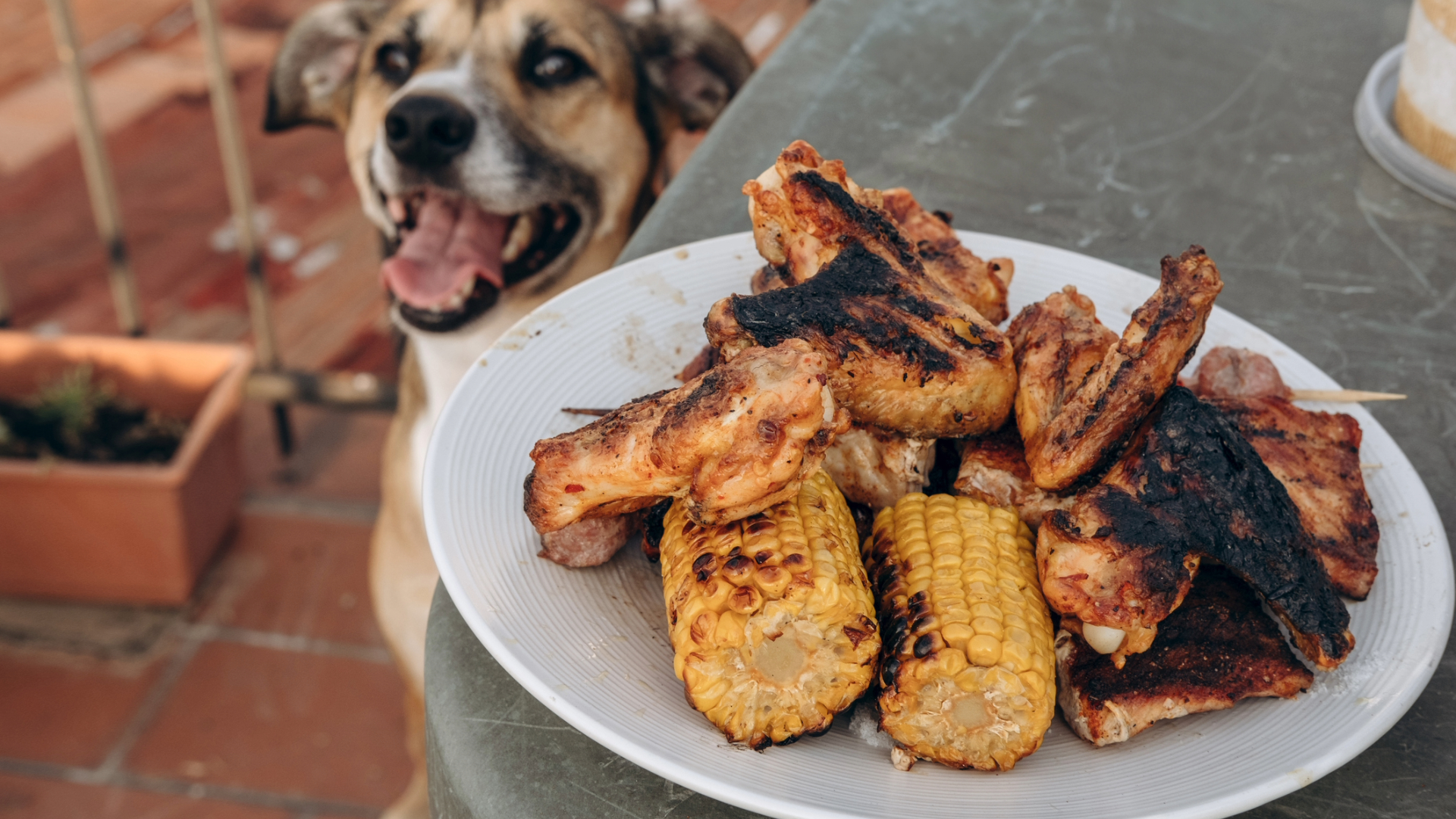
Can dogs eat corn?
So, if the cob is dangerous, what about the corn kernels themselves? Good news – dogs can eat corn, as long as it’s been properly prepared and provided it is served in moderation.
Corn is a source of carbohydrates, fiber, and essential nutrients like vitamin B and magnesium. Many commercial dog foods even contain corn as a component of their grain blend. So there’s no need to panic if your dog has nibbled a few kernels off your plate.
However, corn should always be served off the cob, plain (no butter, salt, or seasoning), and in small amounts. Too much can cause digestive upset, especially in dogs with sensitive tummies or grain intolerances. And never allow your dog to gnaw on a cob just to get at the – remove the kernels yourself first and supervise your dog while they eat.
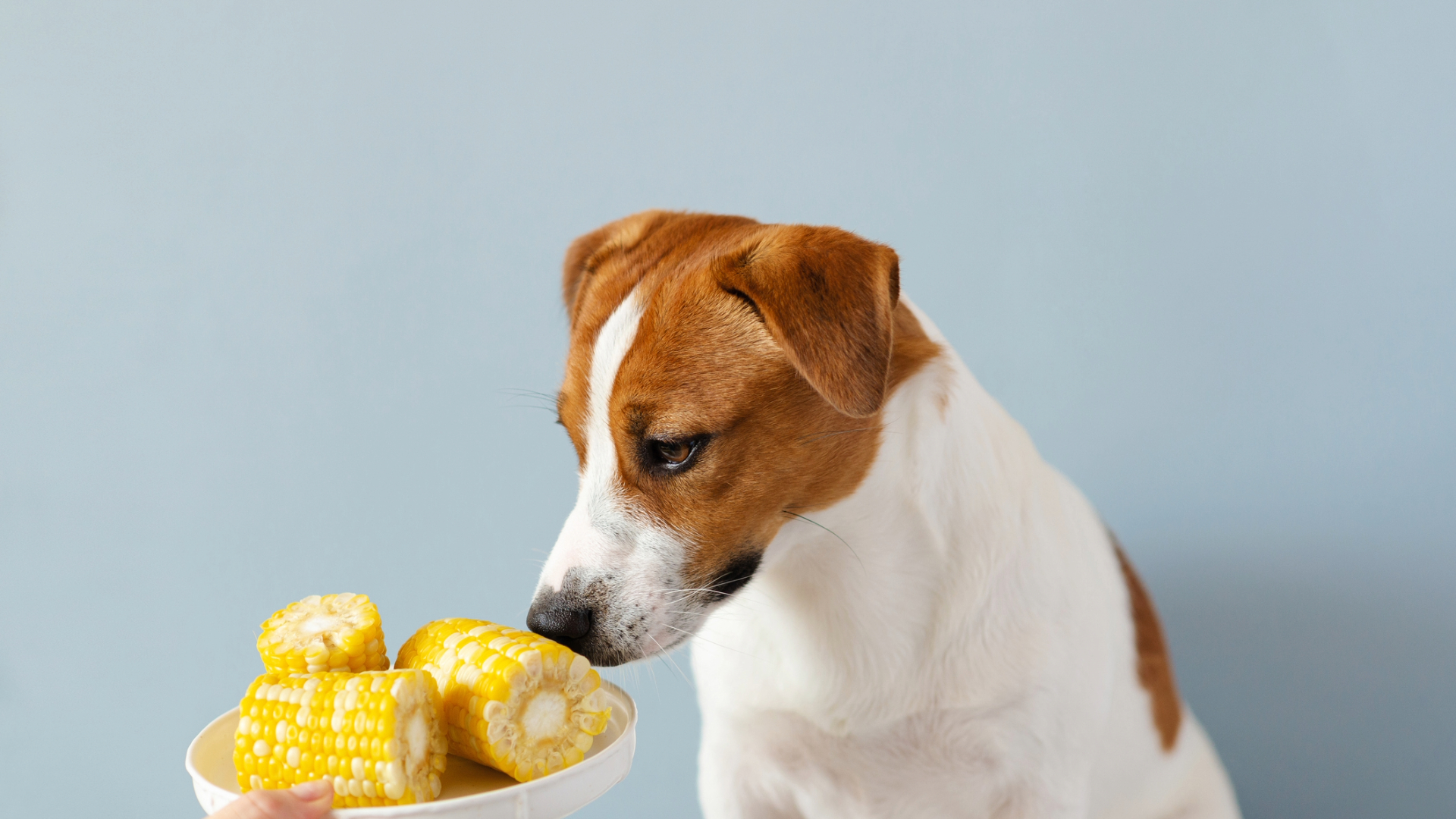
Dangers of feeding corn to your dog
Let’s take a closer look at the main dangers of feeding corn – especially on the cob – to your dog:
- Intestinal blockage: This is the number one concern. A swallowed corn cob can get lodged in your dog’s stomach or intestines and will almost always require surgical removal. Symptoms include vomiting, lethargy, abdominal pain, and lack of appetite. This is classed as a veterinary emergency.
- Choking hazard: Even if the cob isn’t swallowed whole, small bits can break off and pose a choking risk, especially in small breeds or enthusiastic gulpers. Ensure you know what to do if your dog is choking.
- Digestive irritation: The fibrous material of the cob can irritate the gut lining, potentially causing inflammation, vomiting, or diarrhea.
- Seasoning toxicity: Butter, salt, garlic, and spices often added to corn at barbecues can be harmful or toxic to dogs, leading to gastrointestinal upset. If your dog consumes heavily buttered corn, they may ingest too much fat, which can trigger pancreatitis – a painful and potentially serious condition requiring vet treatment. Make sure you are aware of other foods that dogs shouldn’t eat too.
If your dog has managed to grab a corn cob, it’s best to call your vet straight away, even if they seem fine initially. Early intervention can prevent a minor problem from becoming a major one.
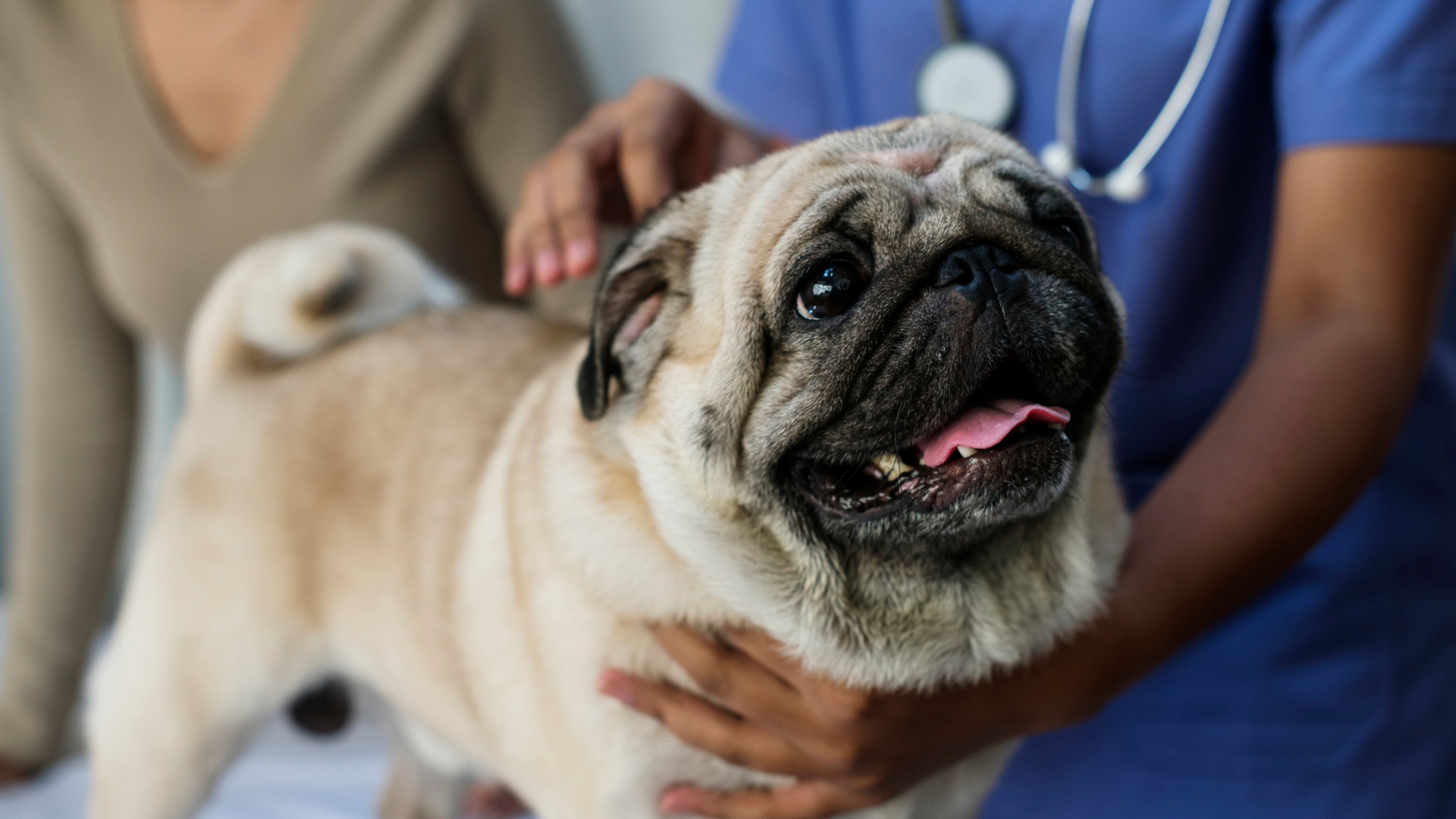
Dog chew alternatives
If you’re looking for something safe, satisfying, and vet-approved for your dog to chew on, you’re in luck – there are plenty of safer alternatives to corn cobs available.
- Natural rubber toys: They can be stuffed with dog-safe treats or peanut butter (make sure it is xylitol-free) for a long-lasting chew that also provides mental stimulation.
- Nylon chew bones: Specifically designed to be tough and long-lasting without splintering. Make sure to pick veterinary-safe nylon chews (like those from Nylabone Puppy line), which are designed to be safe for developing teeth. Avoid very hard nylon chews that can fracture teeth, and always supervise your dog when giving a chew bone.
- Dental chews: Help keep your dog’s teeth clean while giving them something safe to gnaw on. Always make sure you choose a chew approved by the Veterinary Oral Health Council.
- Raw carrots or sweet potato slices: Great natural options for dogs that love to crunch, though they should always be given under supervision.
Kong Toughest Natural Rubber Chew | Amazon
The Kong Extreme is made from ultra-strong natural black rubber, designed to satisfy your dog’s instinct to chew while standing up to serious play.
Corn cobs might seem like a harmless leftover to toss your dog during BBQ season, but they pose serious risks that no pet parent should ignore. Dogs should never chew on corn cobs, due to the danger of intestinal blockage, choking, and digestive upset. While dogs can enjoy corn kernels in moderation, it’s essential to keep them cob-free and plain.
If you’re ever in doubt about what your dog can safely chew, stick to purpose-made chews and vet-recommended treats. Not only will your pup be safer, but you’ll avoid the stress of an unexpected trip to the emergency vet.
Read next: Best durable dog toys, why is my dog chewing rocks and can dogs have fish skins?
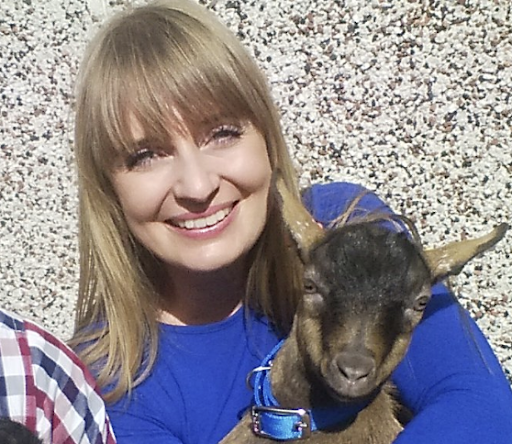
Emma graduated from the Royal Vet College in London in 2011. She has a keen interest in surgery and went on to do a postgraduate certificate in small animal surgery and was then awarded advanced practitioner status in the same discipline.
Edited by Megan Milstead.
This page was last updated in June 2025 by Emma Chandley.
Emma Chandley is a vet with 14 years of experience and has a keen interest in surgery. After graduating from the Royal Vet College in London in 2011, she achieved a postgraduate certificate in small animal surgery from the British Small Animal Veterinary Association and Nottingham Trent University. She was then awarded advanced practitioner status in the same discipline by The Royal College of Veterinary Surgeons. She has a black Labrador and two pygmy goats at home.
